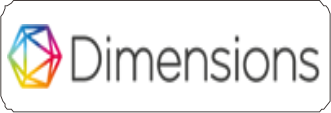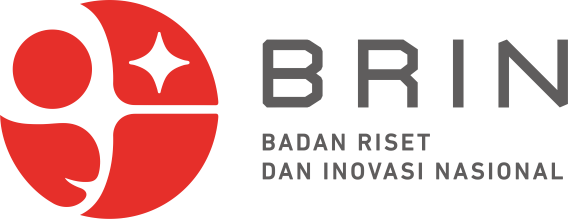TRANSFORMASI PENYIARAN DIGITAL URGENSI HARMONISASI REGULASI DALAM ERA MEDIA KONVERGEN STUDI DI KABUPATEN TANAH KARO
Abstract
Digital broadcasting transformation is a must in the context of convergent media that continues to develop. This change not only has a significant impact on broadcasting technology, but also requires regulatory harmonization to ensure that digital broadcasting can be implemented effectively and sustainably. This study aims to analyze the importance of regulatory harmonization in the context of digital broadcasting transformation in Tanah Karo Regency. The methodology used in this study is a qualitative approach with case studies, in-depth interviews, and document analysis. The findings of the study show that there are various challenges in the implementation of digital broadcasting, such as differences in the interpretation of regulations, lack of digital infrastructure, and the need to increase the capacity of human resources. Therefore, harmonization of regulations is crucial to create a consistent framework, encourage innovation, and ensure digital inclusion for all levels of society. This study recommends that local governments collaborate with relevant stakeholders in formulating adaptive and inclusive regulations. In addition, education and training efforts are needed for the public and industry players to maximize the potential of digital broadcasting in the era of convergent media.
References
Agustiawan, M Hendri, Khoirul Umam, and Mohammad Maleka, �The Importance of Consumer Protection Law Revision in the Development of E-Commerce in the Digital Transformation Era in Indonesia�, Proceedings of Islamic Economics, Business, and Philanthropy, 1.2 SE-Articles (2022), 305�17
Aji, Prasetyo Matak, Vanessa Nadhila, and Lim Sanny, �Effect of Social Media Marketing on Instagram towards Purchase Intention: Evidence from Indonesia�s Ready-to-Drink Tea Industry�, International Journal of Data and Network Science, 4.2 (2020), 91�104
Amar, Muhammad Ikhwan, Abrar Mpandi, and Rabiahtul Adawiah, �TRANSFORMASI MEDIA ANALOG KE MEDIA DIGITAL SEBAGAI UPAYA ADAPTASI ( ANALISIS KONVERGENSI MEDIA)�, Jurnal Ilmiah Multidisiplin Terpadu, 8.7 (2024), 379�88
Creswell, John W., Research Design (Los Angeles: Sage, 2009)
Eka, Anisya, and Elisa Susanti, �Digital Readiness in The Digitalization of Public Service in Mekarsari Village, Selaawi Sub-District, Garut District�, Jurnal Ilmu Administrasi: Media Pengembangan Ilmu Dan Praktek Administrasi, 21.1 (2024), 58�68
Ekstr�m, Mats, and Oscar Westlund, �The Dislocation of News Journalism: A Conceptual Framework for the Study of Epistemologies of Digital Journalism�, Media and Communication, 7.1JournalismandSocialMedia (2019), 259�70
Hongladarom, Soraj, �Shoshana Zuboff, The Age of Surveillance Capitalism: The Fight for a Human Future at the New Frontier of Power�, Ai & Society, 38.6 (2023), 2359�61
I Putu Juni Antara, �Tantangan Regulasi Penyiaran Indonesia Di Era Digital_ Konvergensi Regulasi Dalam Ruang Publik Digital�, Studio Magister MKP UGM, 2024
Ichsan, Muh, Rahma Hasnah, Muh Faiz, and Suryani Musi, �Analisis Konvergensi Media: Studi Transformasi Dari Media Analog Ke Media Digital�, Triwikrama: Jurnal Ilmu Sosial, 4.4 (2024), 19�30
Indonesia, Presiden Republik, �UNDANG-UNDANG REPUBLIK INDONESIA NOMOR 32 TAHUN 2002 TENTANG PENYIARA�, Oxford University Press (Indonesia, 2002), p. 649
IRA, �Penyiaran Di Daerah Harus Ambil Peluang Lewat Konvergensi Media�, Komisi Penyiaran Indonesia, 2020
Iwana, Meriko Dian Candra, A. R.Rohman Taufiq Hidayat, Dian Dinanti, and Kenichiro Onitsuka, �The Effects of Internet on Rural-to-Urban Migrating Intentions of Young Villagers: Evidence from Rural Indonesia�, Agraris, 8.2 (2022), 139�59
Jenkins, Henry, Convergence Culture Where Old and New Media Collide, Convergence Culture (New York and London: New York Uni vers i t y Press, 2006)
Judd, Harry T. Reis and Charles M., HANDBOOK OF RESEARCH METHODS IN SOCIAL AND PERSONALITY PSYCHOLOGY, Journal GEEJ (London and New York: Cambridge University Press, 2014), vii
Khan, Tabassum Ruhi, �Digital Disconnect: How Capitalism Is Turning the Internet against Democracy, Written by Robert W. McChesney�, Asiascape: Digital Asia, 2.3 (2015), 305�7
Kim, Daeho, Media Governance in Korea 1980 � 2017 (London: PALGRAVE MACMILLAN, 2018)
Krumsvik, Tanja Storsul & Arne H., Media Innovations A Multidisciplinary Study of Change (Sweden: Nordicom University of Gothenburg, 2013), i
Matthew B. Milees, A. Michael Huberman, Johnny Saldana, Qualitative Data Analysis A Methods Sourcebook, Sustainability (Switzerland) (London and New York: Sage Publications, 2014), xi
Novrian Novrian, Suroso Suroso, Mohamad Sudi, Muhsin Efendi, and Gelo fakta Razali, �Public Relations and Digital Media�, Jurnal Ilmiah Teknik Informatika Dan Komunikasi, 3.2 (2023), 235�49
Puppis, Manuel, �Media Regulation in Small States�, International Communication Gazette, 71.1�2 (2009), 7�17
Rahmawati, Ayu, and Firman Kurniawan Sujono, �Digital Communication through Online Learning in Indonesia: Challenges and Opportunities�, Jurnal ASPIKOM, 6.1 (2021), 61
Ratu, Aurelius, Edy Subali, . Marsudi, Banu Prasetyo, Arfan Fahmi, Siti Zahrok, and others, �Understanding the Impact of Social Media and Socio-Demographic Variables on the Family Income in a Developing Society�, September, 2020, 651�58
RG, �Era Konvergensi Media Dan Instrumen Regulasi Penguatan KPI�, Komisi Penyiaran Indonesia, 2020, p. 1
Rhodes, Samuel C., �Filter Bubbles, Echo Chambers, and Fake News: How Social Media Conditions Individuals to Be Less Critical of Political Misinformation�, Political Communication, 39.1 (2022), 1�22
Rossatul Nurliza, Eko Purwanto, Tantry Widiyanarti, Sopian, Hana Asilah Mumtaz, Berliyanti Sapitri, Novi Puspita Sari, Husnul Ma�rifah, �Analysis Of The Influence Of Media On Cultural Change In The Digital Age�, International Journal of Progressive Sciences and Technologies (IJPSAT), 45.1 (2024), 29�35
Sella Ellissa Devita Sari, Mutiara Wikant Saphira, and Theodore Sibarani, �Legal Aspects of Consumer Protection in E-Commerce Transactions: Implementation and Urgency of Regulations in the Digitalization Era�, JUSTICES: Journal of Law, 3.2 (2024), 86�110
Siregar, Alya Rahmayani, Azrai Harahap, and Mahardhika Sastra Nasution, �Etika Komunikasi Media Digital Di Era Post-Truth�, Jurnal Paradigma: Jurnal Multidisipliner Mahasiswa Pascasarjana Indonesia, 5.1 (2024), 39�53
Sukmayadi, Vidi, �The Dynamics of Media Landscape and Media Policy in Indonesia�, Asia Pacific Media Educator, 29.1 (2019), 58�67
Sumardi, Eko, and Indah Suryawati, �Indonesian Journalism in the Era of Information Disruption�, Propaganda, 2.1 (2022), 15�31
Sutrisno, Sutrisno, �Changes in Media Consumption Patterns and Their Implications for People�s Cultural Identity�, Technology and Society Perspectives (TACIT), 1.1 (2023), 18�25
Tapsell, Ross, �Platform Convergence in Indonesia: Challenges and Opportunities for Media Freedom�, Convergence, 21.2 (2015), 182�97
Wahyuni, Hermin Indah, Andi Awaluddin Fitrah, Deby Febriyan Eprilianto, and Ida Mardalena, �Technology, Transparency, and Collaboration/Integration: Analysis of Digital Government Problems from Public Communication Perspective during the COVID-19 Pandemic in Indonesia�, Information Polity, 29.1 (2024), 93�111
WARD, STEPHEN J. A., Ethics and the Media Second Edition Now (London: Cambridge Applied Ethics Titles, 2016)
Wilding, D, P Fray, S Molitorisz, and E Mckewon, �The Impact of Digital Platforms on News and Journalistic Content�, Centre for Media Transition, 2018, 175
Yuliar Pranantha, Avian, Dadang Rahmat Hidayat, and Teddy Kurnia Wirakusumah, �Transformation of Local Print Media in the Era of Disruption to Maintain Business Continuity�, Edunity Kajian Ilmu Sosial Dan Pendidikan, 2.12 (2023), 1496�1510
Copyright (c) 2025 Zulham Zulham, Hasan Sazali

This work is licensed under a Creative Commons Attribution-NonCommercial 4.0 International License.



.png)












